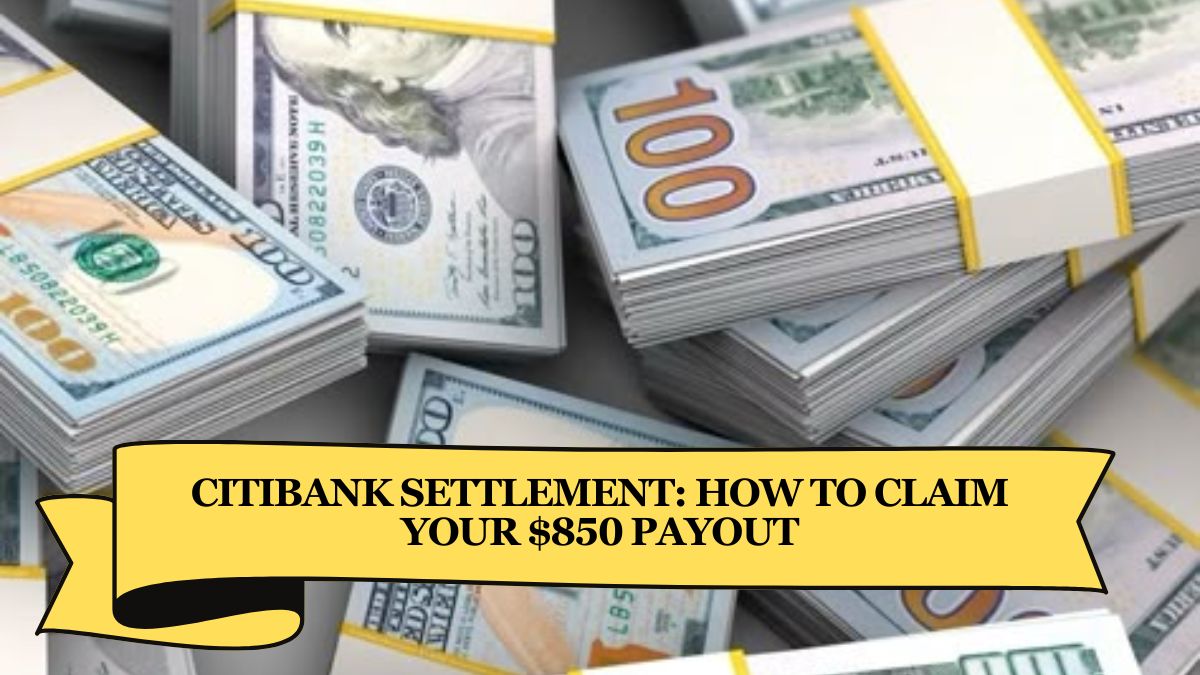Citibank has recently agreed to pay $29.5 million to settle claims that it violated the Telephone Consumer Protection Act (TCPA). The issue arose from Citibank making unwanted automated calls to people who were not customers, trying to inform them about overdue credit card balances. If you were one of those affected, you could be entitled to a payment of up to $850. Here’s everything you need to know about how to claim your payout.
What is the Citibank Settlement About?
The lawsuit against Citibank revolves around the bank’s use of automated or pre-recorded voice messages to call people who weren’t its customers. These calls were related to overdue credit card payments and were made without the recipient’s consent. The calls violated the TCPA, which protects consumers from receiving unwanted telemarketing calls. As part of the settlement, Citibank agreed to compensate individuals who received these calls between August 15, 2014, and July 31, 2024.
Who is Eligible for the Citibank Settlement?
To be eligible for the settlement, you must meet certain criteria. First, you should not be a current or former customer of Citibank. This means you should not have had any accounts or credit cards issued by the bank. Only those who received unsolicited automated calls without having any relationship with Citibank will qualify for compensation.
In addition, you need to show that you received at least five unsolicited automated calls on your mobile phone. The calls must have been related to overdue credit card balances. You can provide evidence of these calls through phone records, screenshots, or other documentation that shows these calls were received between August 15, 2014, and July 31, 2024.
How to Submit Your Claim
If you think you’re eligible for the payout, you can claim your share of the settlement by following one of two methods.
- Submit a Claim by Mail
You can fill out the official claim form and send it via mail to:
Head v. Citibank, N.A.
P.O. Box 301134
Los Angeles, CA 90030-1134
Make sure the postmark on your envelope is before December 20, 2024, to ensure your claim is accepted. - Submit a Claim Online
Alternatively, you can file your claim online through the official settlement website. This method is quick and easy, allowing you to submit your claim without the hassle of mailing a physical form.
What Information Do You Need to Submit a Claim?
To ensure your claim is valid, you must provide specific information on the claim form. This includes:
- Your name and address.
- The claim identification number (if available).
- The phone number that received the calls.
- A signed declaration stating that you are not a current or former customer of Citibank.
This information is required to verify your eligibility and to process your payment.
When Will Payments Be Processed?
Once your claim is submitted, the court must approve the settlement. If no one appeals the settlement, payments are expected to be processed within 45 days after the court’s final approval. However, if there are any appeals, this could delay the payment process. Be sure to keep track of any updates related to the settlement.
Why is This Settlement Important?
This settlement is significant as it ensures financial institutions such as Citibank are held responsible for their communication practices. Many consumers have been affected by unwanted automated calls, and this settlement helps enforce the Telephone Consumer Protection Act (TCPA), which was put in place to protect consumers from such practices. By claiming your compensation, you’re not just receiving a payment but also sending a message about the importance of respecting consumer privacy.
How Much Can You Get?
Each eligible claimant can receive up to $850 as compensation for the inconvenience caused by these unsolicited calls. The exact amount you get will depend on the total number of valid claims submitted, but it could be as high as $850 per person if you meet all the criteria.
Key Takeaways
If you received unsolicited calls from Citibank about overdue credit card balances between 2014 and 2024, and you weren’t a customer of the bank, you could be eligible for compensation. Make sure to submit your claim before the December 20, 2024 deadline and include all required information to ensure a smooth payout process.
Must Visit: California State Online

